Types of Crimes and Punishment Levels
A qualified defense attorney can be what makes the difference in your going to prison or going free. Being able to understand the types of crimes and punishment can be what makes that difference.
While no attorney would ever guarantee a specific result, Charles Bunk will promise that his experience and knowledge of the criminal laws of Texas will make a difference.
Felonies in Texas
Capital Murder:
A capital murder conviction may result in either life in prison or being sentenced to death.
1st Degree Felonies
Punishment range of 5 to 99 years or life in prison with a possible fine not to exceed $10,000.
2nd Degree Felonies
Punishment range of 2 to 20 years in prison with a possible fine not to exceed $10,000.
3rd Degree Felonies
Punishment range of 2-10 years in prison with a possible fine not to exceed $10,000
State Jail Felonies
Punishment range of 180 days to 2 years in a State Jail facility with a possible fine not to exceed $10,000.
Misdemeanors in Texas
Class A
Punishment range up to one year in the County jail with a possible fine not to exceed $4,000.
Class B
Punishment range up to 180 days in the County jail with a possible fine not to exceed $2,000.
Class C
No jail time but a possible fine of up to $500.
All crimes in Texas are subject to enhancement which could change the range of punishment.
These issues are complex and would require more explanation than this site allows. If you are facing criminal charges and have been in trouble before, consult a qualified defense lawyer immediately to determine the potential effects on your case.
Your Criminal History
What if I am accused of violating my probation?
If you are on probation, community supervision, or deferred adjudication, your supervision officer may accuse you of violating the conditions or terms of your probation. This is done by the filing of a motion to revoke probation or a motion to adjudicate. Either of these could lead to your probation being revoked and your being sentenced to prison and or jail.
You should contact a qualified defense attorney immediately as time is of the essence in this situation just as in all criminal matters. Charles Bunk will aggressively defend you and your rights, and he will use his extensive expertise as a prosecutor to analyze and defend your alleged violations.
Expunction
An expunction is an order from the Court which is issued to all law enforcement agencies in possession of information regarding your criminal history. This order requires that any of these agencies in possession of such records destroy the records that relate to the case that is being expunged. In the event that you obtain an expunction order, you can legally deny ever having been arrested or charged with that criminal offense. For this reason, an expunction can be the only way to clear your record.
These are some examples of individuals who may be eligible for an expunction. If a case was dismissed by the District Attorney's office or no billed by a grand jury, you may be eligible for an expunction. If you were found not guilty by a judge or a jury, you may be eligible for an expunction. In certain situations, Class C misdemeanors may qualify for an expunction.Contact our offices today to let us help you determine if you may be eligible for an order of expunction.
Non Disclosure Orders
Successful completion of your deferred adjudication is the first step required in a Petition for Non Disclosure. Upon this successful completion of deferred adjudication, you may seek an Order from the Court that prohibits certain law enforcement agencies from disclosing your criminal history or record to the public.
It is a common belief that once you have successfully completed your deferred adjudication, your record is then cleared. This is incorrect. Without seeking and obtaining an Order of Non Disclosure, the fact that you were arrested and placed on deferred adjudication is available to private parties seeking this information.
It is important to realize that the statute that controls these Non Disclosure orders is complicated with many possible exceptions. Please contact us today to find out if it may be possible to help clear your record with a Non Disclosure order.

